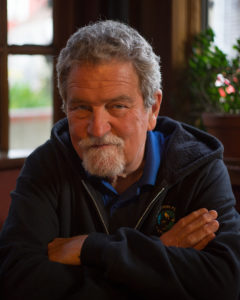 PROVINCETOWN — It happened again the other morning: walking my dog on the beach I met a couple and we began talking. I mentioned something about last winter’s storms. There was a pause. He asked: “Do you live here?” Yes. “Year-round?” Yes.
PROVINCETOWN — It happened again the other morning: walking my dog on the beach I met a couple and we began talking. I mentioned something about last winter’s storms. There was a pause. He asked: “Do you live here?” Yes. “Year-round?” Yes.
“Nice!” he exhaled in a reverential tone. Instantly I felt my status elevate: not just an old guy walking his dog, but a year-rounder! A bit of a rock star.
It is tempting to think of yourself as special when you know you are not, because you are fortunate enough to live somewhere special.
In all descriptions of this town, by writers famous and not-so, I have never seen captured the special quality of what it means to live here, to be from here, to be of here. Provincetown represents so much to so many. It is the stuff of dreams. I could almost see the images that couple harbored of their future lives in Provincetown: starting that little gallery or bookstore or sandwich or jewelry shop; working on that novel or book of poetry or pottery project; walking the beaches and the narrow streets throughout the year; declaring yourself.
Thoreau said in his book Cape Cod that he was looking for what was “peculiar or superior” about the area. That would be my goal for describing Provincetown: what is the quality that is so attractive, so addictive, that people sacrifice a great deal to live here, and are so happy to be here? Happiness suffuses this place, in a way that I am not so sure happens in Dedham or Natick or Worcester. Why is this? (By the way, what I say about Provincetown could equally apply to Truro, Wellfleet, and Eastham — but I am not the one to say it.)
There is the beauty of the place of course. Not only the gorgeous summer light but the stark grays of winter, when, as Philip Hoare writes, “the bare bones” of the town are exposed. The narrow streets and lanes, the tended gardens and the ones that are not, the harbor and the town wharves, the jetties, the fishing boats, the beaches, and the wooded stretches along the backside of town. The massive dunes can be felt if not seen, their presence looming over the tiny town they back up. And of course the ocean and the bay that surrounds, pummels, buffets. Salt air pervades, and at times the smell of fish, diesel, seaweed.
And there is also the sense of wildlife sharing this space: the ubiquitous herring gulls sailing over Commercial Street, the dolphins and occasional whales that come into the harbor, the red foxes that play in people’s yards, the coyotes that lurk and sometimes strut along the street, the peregrine falcon perched on the monument or on top of the library’s cupola.
And the other wildlife, specific to the brief summer months: the energy on the streets, so many people happily strolling down Commercial, seeing and being seen, laughing, flaunting, enjoying being part of a scene, a tableau of hedonistic activities but also innocent pleasures: a drag queen prancing by a child getting her face painted. This burst of human energy is so intensely focused on just a few months and then cycles into a quieter time in the fall and then an even quieter winter, where the same streets almost echo the footsteps of summer and the empty shop windows quiet us down.
It is in the winter that the year-rounder gains his or her true bearings: the town is so small that it is possible to recognize almost every face. Some come with names, some without. Whether it is at town meeting — that delicious exercise in self-government — or going out to Stop & Shop, or to Far Land or the Wired Puppy, one sees the same faces and becomes familiar with them. There is an intimacy that cannot be avoided. It is tribal in a way: we share a space and a devotion to that space that elides any other differences between us.
It is a bedrock human condition to know and be known, to be part of a fabric, a thread in a tapestry. To be part of a town of 2,700 (give or take) souls is to live in a more basic mode, perhaps the condition that we evolved to be in. The world beyond is large and confusing; it cannot be denied; but here we confront each other on terms that existed thousands of years ago. There is Facebook and all the rest, but an impromptu meeting on the street is still primary. And living here for over 50 years, as I have, there are increasingly conversations with the dead. This morning I thanked Barbara, gone these many years, for her portulaca flowers that blossom every year just where she planted them.
The other night, pedaling home in the dark along Commercial Street, I heard two disembodied voices on the street. One said, “He is my massage therapist, and he plays in the band every Sunday night.”
I smiled to myself: I knew him well.



